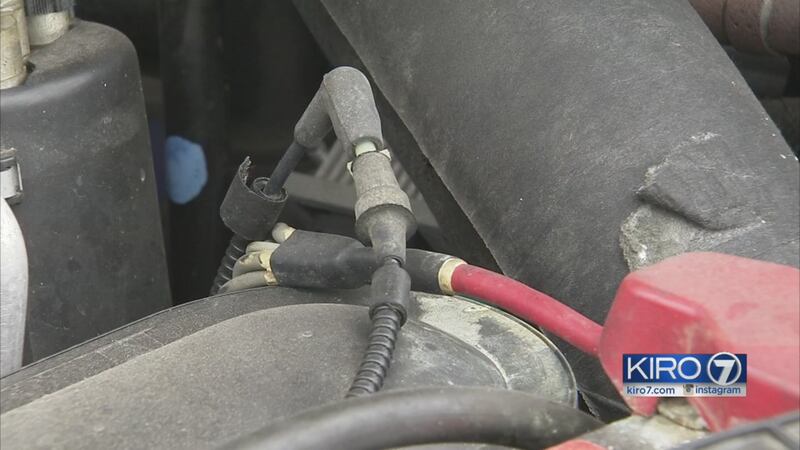Rodents are known to find their way into car engines to warm up and chew up the wires.
The damage they do to the wiring is costing car owners thousands of dollars to repair.
KIRO 7 found car owners are complaining to the federal government about car manufacturers using a soy-based coating on engine wires.
Chiropractor Paul Mack was on his way to his Shoreline office when the "check engine" light came on.
He took his 2012 Toyota Highlander to the shop. Two hours later he got a phone call.
"He says,'Call your insurance company. You have a rodent infestation,'" Mack said. "I was like are you kidding me?"
Rodents chewed through both wiring harnesses, belts and hoses. The repairs cost $8,300. His insurance company covered most of it.
He was even more surprised when he learned what might might have made his SUV more attractive to rodents.
<span id="docs-internal-guid-11ea6a4c-bc20-a112-e0b0-bb0bc7d561e0">When </span>he found out soy is being in the wire coating of many vehicles, Msaid, "Rats probably like it -- lunchtime. So that can't be good. Maybe they should rethink that."
A class-action lawsuit by Honda owners might get them to do that. It's asking that manufacturer to pay for the repairs. The suit covers 2012-2015 Hondas damaged while still under warranty.
One of the plaintiffs bought his car at Hinshaw Honda in Auburn. When he moved to Texas, rabbits chewed the wires, twice.
The suit claims Honda is aware of the problem, and even sells rodent repellent tape to wrap the wires. But the lawsuit also claims neither Honda nor the dealership offered to use that repellent tape for his repairs.
At Kenmore Automotive Dave Calderon is kept busy repairing wiring destroyed by rodents.
"We open the hood and we know right away. We can tell," said Calderon. He said the first sign is the rat or mouse poop inside the engine.
He found the service bulletin online where Honda recommends using rodent tape in the repair.
"Obviously they realized these wires are coated with something that attracts them. What's our fix? How do we take care of this?" Calderon said.
Honda sells rodent deterrent tape. It's loaded with capsaicin -- chili power.
Calderon tells his customers to put Bounce fabric softener sheets in the engine compartment to keep rodents away.
<span id="docs-internal-guid-11ea6a4c-bc20-a112-e0b0-bb0bc7d561e0">"They're using the spicy side, I was using the more fragrant side. That's something I learned from somebody else which has seemed to work," </span>Calderon said.
Jim Peterson had his Ford truck chewed several years ago. He paid $2,500 out of pocket.
"It's something you don't want to have happen. It's something you don't think can happen," Peterson said.
But it's apparently happening so often there's a website that tracks the rodent damage -- in all different makes and models.
We contacted the National Highway Traffic Safety Administration. Car owners have filed complaints. But NHTSA is not investigating at this point saying it's not a safety hazard.
But it is an expensive repair and one more car owners could encounter -- when wires are coated with an edible product.
"You never think rats are going to come and have lunch," Mack said.
In response to the lawsuit, Honda wrote it "cannot possibly be responsible for the normal and natural propensity of rodents to chew anything near them."
Honda filed a motion to dismiss the case.
Cox Media Group








